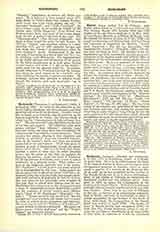

Xochowski, 2 VESPASIAN, b. at Sandomir? 1633; d. at Krakow, 1699. He received his education at the Jesuit College, Sandomir, served in the army, and then spent the rest of his life on his estate. Sobieski valued him so highly as an historian that he took him on his famous expedition to Vienna, the literary result of which was the “Commentarius de bello adversus Turcas”. This and his other Latin chronicles are the best of his time and country. The collection of his short poems, entitled “Busy Idleness”, contains many beautiful verses, and many more that are curious: the subjects range from religion to very coarse fun. There are also love poems, pleasing in their simplicity and nobility of sentiment; there are beautiful lamentations on his brother’s death; and there are satirical poems full of wit and humor. Of all later poets he reminds us most of Kochanowski, though the resemblance is but distant. But he is far more than Kochanowski a writer of what may be called historical poetry, and his pieces in this style are perhaps the finest he has written. From the death of Wladislaw IV till the election of Sobieski, every event of note is celebrated by a separate poem. What strikes one most is the religiously patriotic tone of his poetry. His “Psalmody”, a work of great and genial originality, is distinguished by this tone. Some psalms are merely pious; but in others his prayer falls into a description of the war with the Turks, and mingles therewith such outbursts of gratitude to God for victory, that one comes to feel personally more attached to this poet than to others more famous than he was. The Biblical form adapted to secular things constitutes a point of resemblance between Kochowski’s poetry and the creations of several modern poets (Mickiewicz’s “Book of the Pilgrimage”; Slowacki’s “Anhelli”).”Vienna saved by the Act of God” has fine passages and even a certain epic talent, but is marred by want of artistic finish, proportion, and harmony. The same may be said of “The Stone of Testimony”, a poem written to defend Lubomirski. His purely religious poems, “Christ Suffering” and the “Virgin’s Garden” are distinctly inferior.
S. TARNOWSKI

